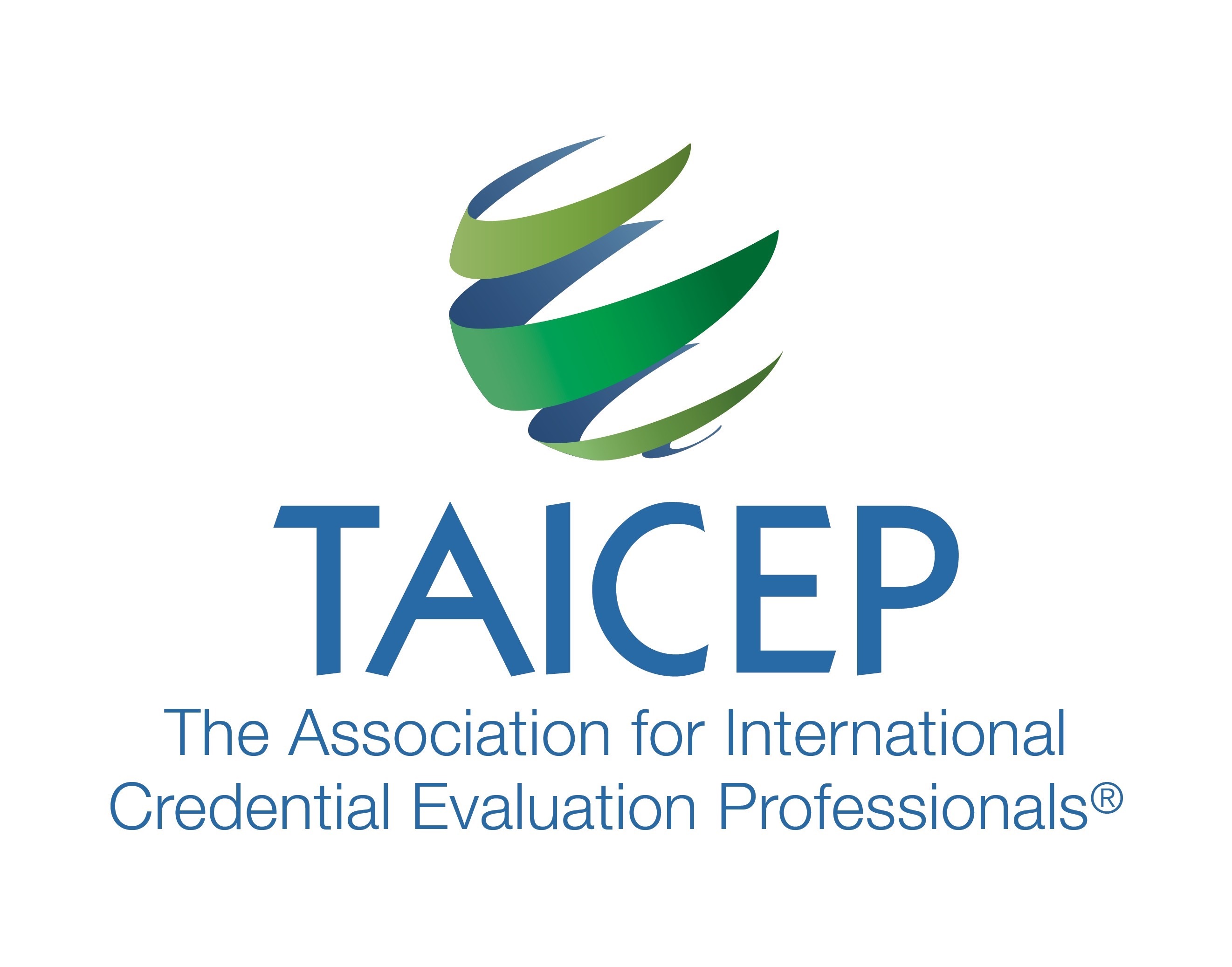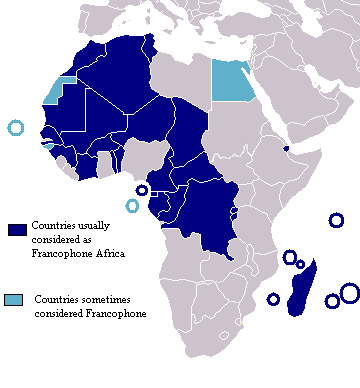Image Source: Wikipedia
Written by: Michel Bédard, Analyste en éducation internationale, Ministère de l’Immigration, de la Diversité et de l’Inclusion (Québec) and Sarah Ledwidge, Manager of Assessment and Research, ICAS International Credential Assessment Service of Canada (Ontario)
Introduction: The complex nature of recognition
Types, levels and mechanisms of recognition
The word recognition itself, in French speaking Sub-Saharan Africa, doesn’t mean much, as it applies to all the possible levels of, well, recognition. The challenge, for a credential assessor, is to identify what are the levels in a specific country, and determine which one corresponds to the standards required by the assessor. In most cases, it means that the PHEI (Private Higher Education Institute) diplomas have the same value as public universities issued credentials, notably in terms of being able to enrol for the next level of studies in a public university, or being considered for employment in the civil service.
So it is important to identify, in each country, what are the type and the mechanism of recognition used. Type – is the recognition institutional or programmatic? Mechanism – is the way in which the quality control of an institution or a program takes place. It comes in many forms. It may be, for example, a national examination at the end of the program, leading to a State diploma issued by the competent authority. Alternatively, it may be assured by an université de tutelle, who will then issue or co-issue the diploma. Or it could be the permission given by a government to a private institution to issue national diplomas.
Recognition may also be granted from outside the country. The most common such mechanism is the CAMES, Conseil africain et malgache pour l’enseignement supérieur. A diploma recognized by the CAMES is recognized by all the member states. For more information on this topic, please see the article in the May 2016 TAICEP newsletter.
Sometimes, the diploma may be issued by a recognized institution located in another country.
Recognition terminology varies
- Through time – when the private higher education institution (PHEI) started to appear in the area, there was little relevant legal texts governing them. In some countries, the only existing regulations were concerning the private primary and secondary schools. So with time, the legal context evolved and so did the terms used. This evolution is still going on in some countries of the area, with the effect that two different recognition mechanisms may coexist for a while.
- From country to country – same words and different meaning or different words and same meaning
- From different levels within an educational system. The recognition terminology may change from between the short higher education sector to the university sector, or between the private and the public sectors.
Confusing terminology
That is probably the most disconcerting aspect: not only the concept of recognition and the meaning of the terms is often unclear to the students enrolling in PHEI, it is often murky even for the authorities themselves. Some documentation, some minister’s interviews published in local newspapers, or even some answers received to inquiries are contradictory. Add to the mix that some PHEI operators make, let’s say, dubious claims about the recognition of their diploma on their web-sites, and it gives in the end lots of grey areas.
Discrepancies between legal texts and reality
The discrepancies between the legal texts and reality is another aspect of this terminology confusion, and it is the most difficult to deal with. Replies to inquiries sometimes flatly contradict the legal texts. It may be because some of the mechanisms described in the texts have yet to be created. The prime example is receiving a letter stating that a PHEI agréé is allowed to deliver diplomas in the name of the State, but the legal texts indicates that such a step is only achieved after the homologation of the programs.
The rise of private higher education in French speaking sub-Saharan Africa
Over the last decades, a few trends gave a huge boost to the private higher education sector.
In most countries of the area, the baccalauréaut de l’enseignement secondaire is the entrance examination and guarantees access to higher education. As both the population and the schooling rates increased, so did the number of students looking for a place in higher education.
At the same time, the programs taught in public higher education institutions were seen as increasingly out of date, especially in the information technology and business administration fields.
The lack of resources in the public sector lead to severe overcrowding of many public universities in the area, and hindered the development of new programs.
The private higher education sector offered a solution to those problems, offering more seats in higher education institutions and new programs, more oriented to the needs of the work-market.
In such a context, there was often a political will to let the private higher education sector develop, as it was seen as something we can’t do without ally in the expansion of higher education.
Key Recognition Terms
Tutelle
The tutelle is the supervising authority of an institution. All public and private institutions in the area have an autorité de tutelle. Most often it is the Ministry in charge of Higher Education (MoHE), but for public institutions, it may be other ministries, such as Public Health or Public Works. The autorité de tutelle is ultimately responsible of all aspects of quality control and grants all the permission discussed below.
In some cases the autorité de tutelle will delegate to an institution, usually a public one, some of its regulatory functions, often in terms of quality control.
Autorisation
In a word, the State gives permission to set up and operate a higher education institution. The number of authorisations in each country may vary. Of course, a PHEI operating without any authorization is an illegal institution. The authorities may have some trouble identifying them as often they are very small institutions. Some would be renting a classroom or two in a primary or secondary school. The République démocratique du Congo had hundreds of such unauthorized institutions.
The usual steps are:
- Autorisation de création: a project is submitted to the authorities. Once accepted, it allows an operator to start setting up a PHEI in terms of physical premises, hiring staff, financial capabilities, etc.
- Autorisation d’ouverture ou de fonctionnement: After submitting a progress report and/or an inspection by the authorities, it allows a PHEI to start enrolling students and begin classes
The creation may be granted to a whole project, but the création and fonctionnement are likely to be granted by academic grade (licence, Master, etc.) and by field of study.
Quality control at this level is variable in the various countries of the area, according, among other variables, to the importance given to higher education and the wealth of the country.
Other terms may be used for other aspects of the PHEI: autorisation d’enseigner, de diriger, d’extension (new fields of study, new schools or faculties), de transfert (changing the location of an institution), de fusion, etc.
As stated before, not all countries function the same way. Some of the steps we discussed may be linked together, may not exist, or may in fact be taken later in the process.
Agrément
Agrément has a common meaning in most countries, but not all. The main exception is the République démocratique du Congo, where it is the highest level of recognition, and it leads to a national diploma.
Agrément, then, is usually the permission from the State to teach a specific program: most often, it’s a national curriculum, or at least an approved program that MAY lead to a national (State) diploma. In order to acquire recognition, some supplementary conditions have to be met: it may be some State examination, a supervision by a public institution, etc.
When a program agréé leads to a recognized diploma, it means that some of the quality control by the competent authority is done when the program is being taught and/or at the end of the program.
In such a case, the diploma must be issued or co-issued by the competent authority, e.g. the MoHE or a supervising institution. A diploma or an attestation provisoire de succès delivered by the PHEI alone lacks the indication that the quality control steps were completed successfully.
There is confusion around the meaning of agreement in some countries, especially when the next step in the recognition process is not yet implemented or even created. This is where discrepancies between the legal texts and what actually happens are most common. Of course, a program which is only agréé may be recognized through other channels: international accords, the CAMES, etc.
The Magic Words: Homologation / Habilitation / Accreditation
Habilitation usually relates to a PHEI: it means that the institution has been delegated the power to deliver national diplomas in the name of the state. Homologation relates to the diploma itself: a diplôme homologué is a national diploma. In some countries, the exact meaning of both words may vary a bit, but it always indicates the highest level of recognition. That level of recognition is usually programmatic rather than institutional. Other terms seen are accréditation and in some cases, agrément. Funnily, accréditation doesn’t always mean recognition, as it is the case for the university level in Morocco. But Morocco is another story.
In terms of quality control, the habilitation/homologation means that a PHEI’s program has successfully met all the quality controls requirements prior to the teaching of a program. As no other control is required, the PHEI may issue national diplomas.
Note that the recognition by the CAMES is very similar to homologation. It is granted by specific program at the PHEI, and it allows the PHEI to deliver recognized diplomas.
As stated before, when researching a credential, we have to know the exact meaning of the wording in a specific country at a specific time and maybe even in a given sector of the educational system. Legal texts, when available, can be incredibly useful. That is, if there are no contradictions between the texts and reality.
In each of the countries of the area, there was a time when no recognition mechanisms for private higher education existed. The legislation governing private higher education has been evolving more or less steadily over the last 20 to 30 years. In at least two countries of the area, Madagascar and Sénégal, a first recognition mechanism has been implanted, and a second one years later. In both cases, there is an overlap between the two mechanisms.
Usually, there’s no retroactivity associated with the habilitation/homologation, but it did exist in the République démocratique du Congo.
** Please see our further articles on Bénin and the République démocratique du Congo immediately following. Look forward to articles on institution and program recognition in Cameroun and Côte d’Ivoire in an upcoming edition of the TAICEP Talk Newsletter. **
Inside this edition:
President’s Welcome -January 2018 Newsletter
Committee Updates -January 2018 Newsletter
Organizational Structure Updates -January 2018 Newsletter
TAICEP Meet Your 2018-2019 Leadership Team -January 2018 Newsletter
Indian Diploma Programmes Awarded by State Boards for Technical Education -January 2018 Newsletter
Brief Primer on the American Territories -January 2018 Newsletter
Cambridge Advanced Coursework: An Introduction -January 2018 Newsletter
Secondary Credential Overview- Part I -January 2018 Newsletter
European Union General Data Protection Regulation -January 2018 Newsletter
Building a Resource Library, Part III -January 2018 Newsletter
Memoriam to David Millar -January 2018 Newsletter
TAICEP News -January 2018 Newsletter
Add to your Library -January 2018 Newsletter
Recent TAICEP Events January 2018 Newsletter
Upcoming TAICEP Events -January 2018 Newsletter
From the TAICEP Website -January 2018 Newsletter
Notes from the Field -January 2018 Newsletter

